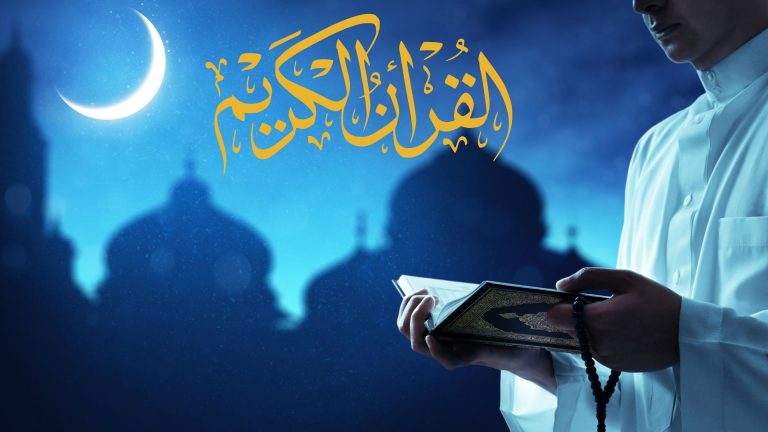What Is The Holy Quran? When It Was Revealed?
The Holy Quran is the central religious text of Islam, believed by Muslims to be a revelation from God. It is widely regarded as the finest work in classical Arabic literature. The Quran is divided into chapters, which are then divided into verses. These verses, known as ayahs, cover a wide range of topics, including theology, morality, guidance for personal conduct, and laws.
Muslims believe that the Quran provides a complete code of life, offering guidance on all aspects of life, including social, economic, and spiritual matters. It is recited and memorized by Muslims worldwide, with those who have memorized the entire Quran known as hafiz.
The Holy Quran is also considered a linguistic and literary miracle, challenging people to produce something similar, which has never been achieved. It is recited in daily prayers and holds a central place in Islamic worship and rituals. Muslims regard the Quran as the ultimate source of authority, using it to settle disputes, guide personal behavior, and form the basis of Islamic law.
The Quran emphasizes monotheism, the belief in one God, and contains stories of previous prophets and civilizations as lessons for humanity. Muslims believe that the Quran will remain unchanged until the Day of Judgment, as it is divinely protected from corruption.
Revelation of the Holy Quran
Muslims believe that the Quran was revealed orally by God to the final prophet, Muhammad, through the archangel Gabriel over a period of about 23 years. This divine revelation began when Muhammad was 40 years old, on Laylat al-Qadr, and ended in 632, the year of his death at around 61–62 years old.
The gradual revelation of the Quran allowed for guidance to be provided to the Muslim community over various situations and challenges they faced during this period. The Quran is considered by Muslims to be Muhammad’s most important miracle, proving his prophethood, and is seen as the culmination of a series of divine messages that began with those given to Adam, including the Tawrat (Torah), the Zabur (Psalms), and the Injil (Gospel).

Divine Origin and Significance
The Quran’s significance extends beyond its role as a miraculous confirmation of Muhammad’s prophethood. Muslims believe it to be the final and ultimate revelation, surpassing all previous scriptures in its completeness and applicability to all aspects of life.
Its divine origin is emphasized through its unparalleled linguistic beauty and depth of meaning, which are believed to be beyond human capability. The Quran’s universal message is underscored by its teachings, which are relevant to people of all times and places, offering timeless guidance on matters of faith, morality, and societal conduct.
Nature of the Quran
The Quran’s nature as the literal word of God is a fundamental tenet of Islamic belief, distinguishing it from all other religious texts. Its status as uncreated, existing eternally with God, underscores its divine origin and infallibility. This belief has profound implications for Muslims, shaping their understanding of the Quran as a comprehensive guide for life that is immutable and applicable in all circumstances.
The Quran’s role as a complete code of conduct reflects its divine nature, providing Muslims with guidance on personal, social, and ethical matters, as well as spiritual enlightenment.
Compilation and Preservation Of Holy Quran
The process of compiling and preserving the Quran reflects the meticulous care taken by early Muslims to safeguard its integrity. Muhammad’s companions played a crucial role in preserving the Quran, both in written form and through oral transmission. The standardization of the Quranic text under Caliph Uthman ensured its uniformity and prevented deviations in recitation.
This preservation effort was aided by the widespread memorization of the Quran among early Muslims, a practice that continues to this day. The Quran’s preservation is seen as a miracle in itself, affirming its status as the unaltered word of God.
Content Integrity Of Holy Quran
Despite some hadiths suggesting the Quran’s textual integrity was not preserved, controversy over its content integrity has rarely been an issue in Muslim history. The meticulous preservation efforts of early Muslim scholars and communities have ensured the accurate transmission of the Quranic text through memorization and written copies.
The oral tradition of recitation, known as Tajweed, has played a crucial role in preserving the exact pronunciation and intonation of the Quranic verses, ensuring that even minor variations in recitation are identified and corrected. Additionally, the practice of memorizing the entire Quran, known as becoming a Hafiz, has further contributed to its preservation, as these individuals serve as living repositories of the text.
The standardized Uthmanic codex, established early in Islamic history, further solidified the preservation of the Quranic text by providing a definitive written version that could be used as a reference for future copies.

Contents and Format
The Quran’s structure and content reflect its status as a comprehensive guide for humanity. It often recounts stories of prophets and their communities, drawing parallels with contemporary societies to impart timeless lessons.
The Quran also addresses theological concepts, such as the oneness of God (tawhid), prophethood, and the afterlife, providing a framework for belief and practice. Additionally, it contains laws and regulations governing various aspects of life, from personal hygiene to the conduct of war, offering a holistic approach to ethics and governance.
The Quran’s format, with its division into 114 chapters of varying lengths, serves to facilitate recitation and memorization. Each chapter, or surah, is further divided into verses, or ayahs, allowing for easy reference and study. This organization also enhances the Quran’s rhythmic and poetic qualities, making it a deeply resonant and memorable text. The Quran’s comprehensive nature and unique literary style contribute to its enduring appeal and influence on Muslims worldwide.
Use in Worship
The recitation of Al Quran holds a central place in Islamic worship, particularly during prayers. Muslims believe that reciting the Quran brings them closer to God and earns them spiritual rewards. The practice of reciting the Quran with proper pronunciation and intonation, known as tajwid, is highly emphasized to ensure the accurate transmission of the text.
During the month of Ramadan, Muslims strive to complete the recitation of the entire Quran in nightly prayers known as tarawih. This practice not only fulfills a religious obligation but also fosters a sense of community and devotion among believers. Overall, the Quran’s use in worship serves as a cornerstone of Islamic practice, reinforcing believers’ connection to their faith and providing a source of spiritual nourishment.
Interpretation and Exegesis
Interpreting the Quran is a complex task that requires deep knowledge of Arabic language, Islamic jurisprudence, and the cultural context of the time of revelation. Exegesis, or tafsir in Arabic, plays a crucial role in elucidating the meaning of Quranic verses. It involves analyzing the text through various lenses, including linguistic nuances, historical context, and theological frameworks.
Muslim scholars have developed a rich tradition of exegesis over the centuries, producing a vast body of literature that explores the meanings and implications of Quranic verses. These interpretations often draw on the works of earlier scholars, as well as contemporary insights, to provide a comprehensive understanding of the text. Through exegesis, Muslims seek to uncover the deeper meanings of the Quran and apply its teachings to their lives in a meaningful way.
FAQs
Is the Quran only for Muslims?
The Quran is considered the holy book of Islam and is primarily for Muslims. However, its teachings and guidance are seen as universal and applicable to all of humanity.
Can the Quran be translated into other languages?
While the Quran can be translated into other languages, the translation is not considered the Quran itself but rather an interpretation of its meanings. The original Arabic text is considered the actual Quran
How is the Quran different from the Bible?
The Quran and the Bible are both religious texts, but they differ in content, style, and approach. The Quran is seen by Muslims as the final and complete revelation from God, while the Bible is a collection of texts that includes the Old and New Testaments.
Are there different versions of the Quran?
There is only one version of the Quran, which is in Arabic. However, there are translations and interpretations of the Quran in different languages, which may vary in their wording and explanations.
Summary
The Holy Quran holds profound significance for Muslims worldwide, serving as a source of guidance, inspiration, and comfort. Revealed to the Prophet Muhammad over a period of 23 years, the Quran is believed to be the literal word of God, providing a complete code of life for all aspects of human existence. Its linguistic and literary excellence is considered a miracle, challenging humanity to produce something similar.
The Quran’s teachings on monotheism, morality, and societal conduct continue to guide Muslims in their daily lives and form the basis of Islamic law. Through its recitation, memorization, and study, the Quran remains a central pillar of Islamic faith and practice, uniting believers across diverse cultures and backgrounds.
